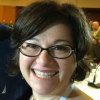On the way home from school one day, my then five-year-old son asked me, "Mom, if nobody's perfect and all people are made in the image of God, doesn't that mean that God isn't perfect?" His question then, and even now, is not easy to answer.
Verses from this week's Torah portion, regarding human perfection, have undergone scrutiny from earliest rabbinic sources through our contemporary times. The priests serving in the ancient temple as connections between the Israelite people and the Divine, were required to be flawless:
No one of the offspring of Aaron the priest who has a defect ( מוּם moom in Hebrew ) shall be qualified to offer God's offering by fire; having a defect, he shall not be qualified to offer the food of his God. ( Lev 21:21)
As a concession, the "imperfect individuals" among the Kohahim, could partake in the sacrificial food, but they were unable to enter the inner chamber from which offerings were presented, to guard against profaning the sacred inner chamber:
He may eat of the food of his God, of the most holy as well as of the holy; but he shall not enter behind the curtain or come near the altar, for he has a defect. He shall not profane these places sacred to Me, for I Adonai have sanctified them. [Lev 21:22-23]
We no longer have the Kohanim serving as conduits to the Divine in the ancient Temple, but attitudes toward people with visible and invisible disabilities (not to mention intersectional forms of oppression) continue to be ingrained in our communities. The Guide to Jewish Values and Disability Rights, a publication from the Jewish Funders Network (March 2016) states:
"Leviticus 21 sheds light on the long legacy of stigma and exclusion that has shaped the lives of many people with disabilities. While these texts can make for uncomfortable reading, they invite us to confront the ways that social marginalization continues to affect people with disabilities."
This week's Torah passage is not the only time we encounter problematic texts from the Tanakh centered on human imperfections. Consider Rebecca and Jacob taking advantage of Isaac's blindness, Leah's less-worthy family status due to her visual disabilities, or the statement in Deuteronomy 28:28, whereby Moses warns that God will afflict those who disobey the commandments with insanity, blindness, and bewilderment.
At the same time, our sacred texts carry commandments that demand special protections for those with disabilities and people who are most vulnerable. In fact, the ruling about priests in this week's Torah portion is preceded by, "Do not insult the deaf, and do not put a stumbling block before the blind; you shall revere your God. I am Adonai." (Leviticus 19:14)
How can we understand these apparent inconsistencies? What can we learn from the conflict between barring full participation in sacred tasks for some people and the commands to treat all people as equals, deserving of Divine connection? And, how can we teach these problematic texts to the next generation?
As our communities continue to evolve, we must continue learning about and most importantly, from, people with visible and invisible disabilities. We need to ensure that we live the teaching, Pirkei Avot 4:1 when Ben Zoma asks, Who is wise? Those who learn from all people." All people. We have changed and grown since ancient days, but our work to be fully inclusive is not yet complete.
The Religious Action Center (RAC), has long supported legislative efforts on behalf of disabilities inclusion, (see: RAC Resolutions, Americans with Disabilities Act, and Accessible Canada Act), but we know that our communities and our leadership do not yet reflect the actual diversity of our movement. Participation in synagogue life that is accessible for all learners and leaders needs to be barrier free for all who cross the threshold into our places of worship, learning, and gathering.
Inclusion, with the goal of ensuring that everyone feels a sense of belonging, is more than a month-long awareness program, it means everyday Jewish justice. Our communities need to review attitudes and accommodations for people with physical and intellectual differences. Jewish prayer practice needs to be examined to ensure the elimination of language, such as blindness and deafness, that are meant to convey spiritual deficiencies. And we need to be unafraid to say that this week's Torah text is superseded by the earlier commandments that call for protections for those with disabilities and vulnerabilities. In our efforts toward justice, we ought to embrace a moral understanding of who gets to belong and who gets to lead us. And we need to be sure people with disabilities are represented in the conversations from the outset. Their voices need to be centered in these conversations.
Perhaps the problematic passage in this week's reading, reflects ancient peoples' perception of the way God operates in our world, indeed revealing our human, and yes imperfect, understanding of the Divine.
Explore Jewish Life and Get Inspired
Subscribe for Emails

